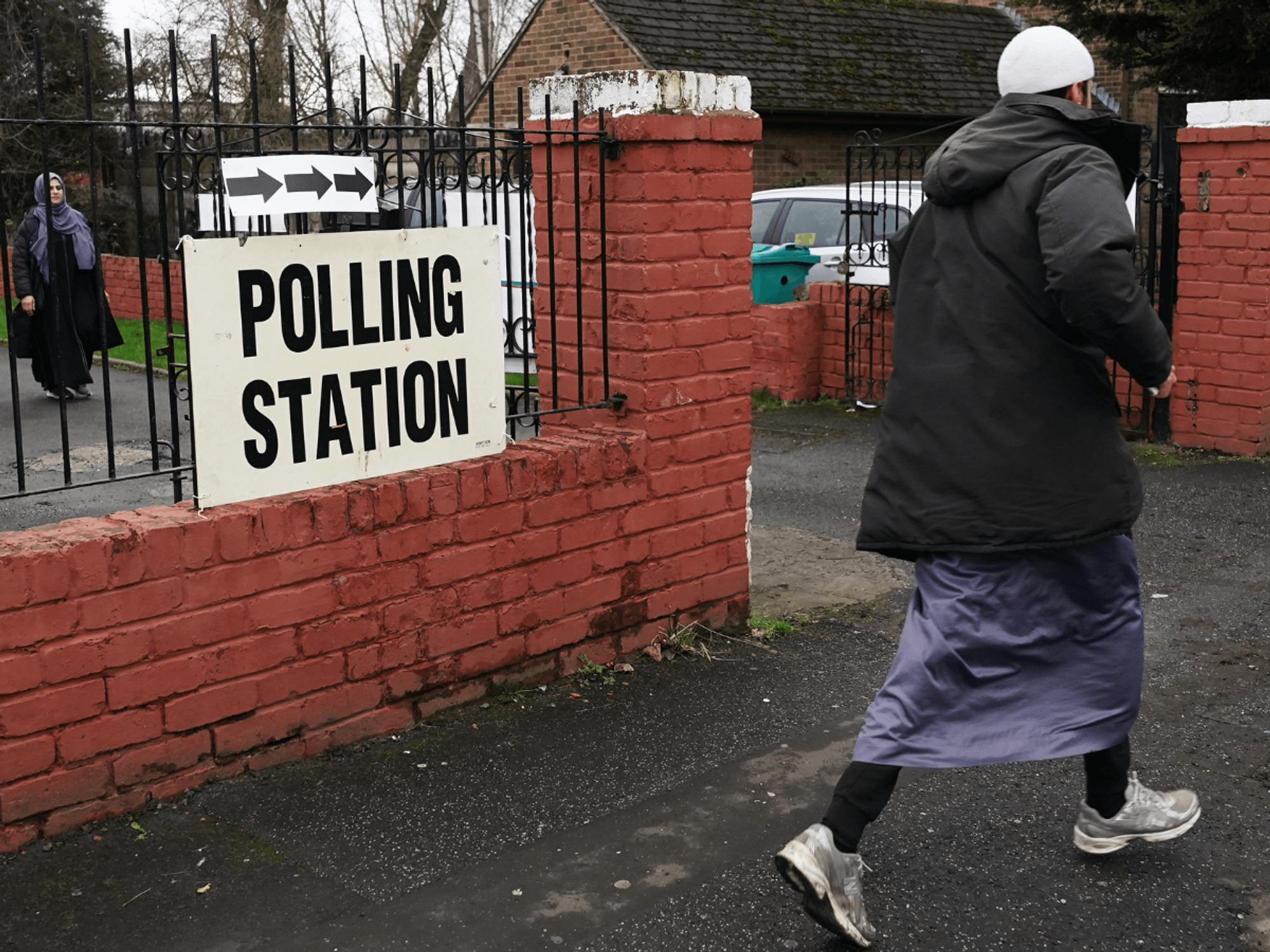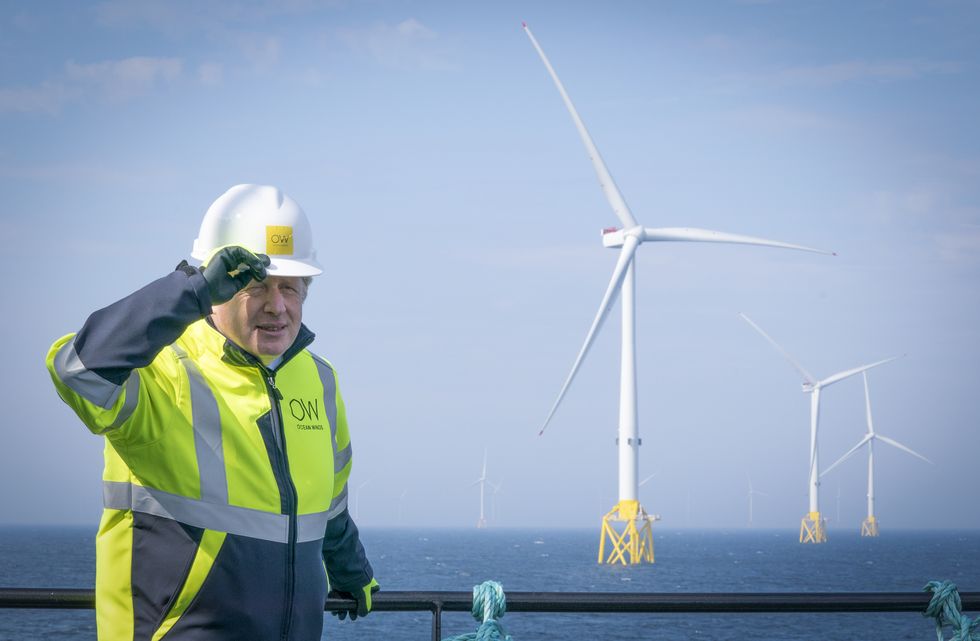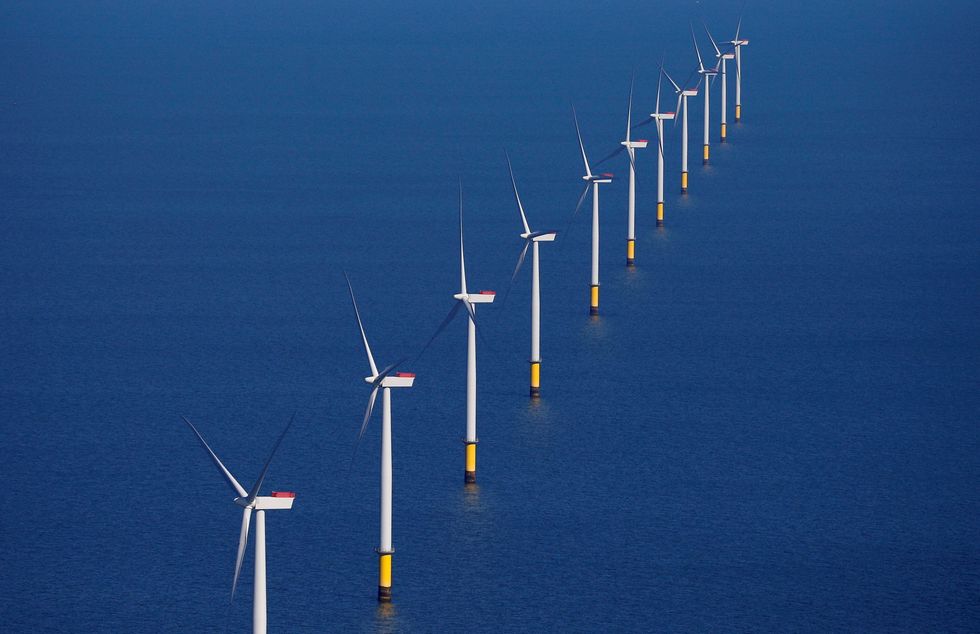Wind farms earn hundreds of millions more from energy crisis after delaying Government subsidy contract

green contracts digit

According to a new analysis, the taxpayer could be half-a-billion pounds worse off due to a recently revealed delay at just one wind farm
Don't Miss
Most Read
The Government has urged developers to “act fairly” after some of the UK largest wind farms delayed taking up "green" Government contracts, potentially allowing them to earn hundreds of millions of pounds more from consumers during the energy crisis.
According to a new analysis, the taxpayer could be half-a-billion pounds worse off due to a recently revealed delay at just one wind farm, which generous "green" Government contracts allowed for.
Leading Tory MPs told GB News the revelations showed the Government's energy strategy was "in tatters".
No new wind farms have begun selling electricity to the grid at “low cost” subsidy deal prices, agreed with the Government, at expected dates since the energy crisis began—instead selling at higher market prices, GB News can reveal.
The Government has called on developers to 'act fairly.'
Danny Lawson
The government guaranteed the income of all new offshore wind farm developments with so-called Contracts for Difference (CfD), part of a wider push to encourage investment in Net Zero.
The contracts mean consumers pay windfarms a subsidy if market prices are low, and wind farms pay money back if they are high.
Since the start of the energy price crisis, several newly completed wind farms have delayed taking up their CfDs, pushing them back by a year from dates listed on the database of the Low Carbon Contracts Company, which manages subsidy deals for the government.
There is no suggestion that the developers are doing anything wrong. CfD contracts allow delays of up to three years and are generally flexible and generous to developers.
But critics of government policy told GB News CfDs mean the bulk of financial risk is put on consumers, not investors. And by allowing for delays, the government has allowed developers to earn massive extra profits as consumers struggle to pay bills.
In fact, since energy prices soared last autumn, no new renewables capacity has been added to the CfD scheme. Every renewable generator that had been expected to start selling at a CfD price 2022 has now been delayed until 2023, and they could push the date back even more.
This means power is being sold to consumers more expensively than expected despite the government giving assurances that wind farms backed by CfDs are cheap and bring prices down.
A Government spokesperson at the Department for Business, Energy & Industrial Strategy (BEIS) told GB News:
“The CfD scheme has been hugely successful in boosting UK energy supply and reducing our dependence on volatile fossil fuels, while also cutting costs for consumers, reducing the price of offshore wind by around 65% since 2015.
A Government spokesperson praised the CfD scheme to GB News.
Jane Barlow
“Projects will not receive CfD payments while they are generating on market terms. We urge companies to act fairly on this matter, recognising the public support they have received for development.”
Steve Baker MP, the Conservative MP for Wycombe, told GB News that the fact BEIS has resorted to pleading with wind farms in their statement to GB News showed the system of wind farm regulation was failing.
The former chair of the European Research Group said: "Pleading for fair play is an admission of massive regulatory failure.
"We urgently need sensible energy policy based on free market prices, profit and loss, not the present failing tangle of state intervention. Public welfare depends upon it."
Craig Mackinlay, the MP for South Thanet, and chair of the Net Zero Scrutiny Group, told GB News: "The false promise of cheap renewable energy is in tatters with ineptly agreed heads they win, tails we lose contracts littering UK energy strategy.
"If energy prices are low, CfDs mean consumers pay out to artificially increase energy prices; when energy prices are high these companies hold back to permanently fix high prices for themselves.
"It’s a shameful racket that households are paying for all in the name of the Net Zero con-trick."
In the case of Moray East, the largest operational offshore wind farm in Scotland, consumers will be around half a billion pounds worse off over 12 months because of a recently revealed 12-month delay to taking up a CfD, if market prices stay as they are now.
Craig Mackinlay MP says cheap renewable energy is a 'false promise.'
MATTHEW CHILDS
GB News has contacted the developers and wind farm, which is 57% owned by Spanish firm EDP Renováveis, multiple times to request an explanation for the delay. We have not received a reply.
Enrique Alvarez, Project Director for Moray East, told the Offshore Engineer website just weeks ago, on April 7th: "I am delighted to announce that Moray East has now achieved its full contracted output of 900 MW."
Their website reads: "Moray East is a highly competitive offshore wind project which was granted consent (1,116MW) in 2014 by the Scottish Government.
“In 2017 it won a 950 MW contract for difference at competitive auction which set the price of power generated at £57.50 per MWhr, and will be delivered early in the next decade.”
They will be selling power to consumers for much more than £57.50 per MWhr this year.
Andrew Montford told GB News 'the Government has a chicken and egg problem.'
Phil Noble
Net Zero Watch’s Andrew Montford told GB News: “The Government has a chicken and egg problem.
“They say that low-bidding CfD wind farms will lower consumer prices, but no wind farm will take up its CfD with market prices so high. The Government’s energy strategy is in tatters”.
Yesterday, it was reported that Kwasi Kwarteng, the Secretary of State for BEIS, was seeking to pressure North Sea Oil producers, who have been criticised for cashing in during the energy crisis, to invest their bumper profits.
Labour, meanwhile, is calling for a windfall tax on oil firms that have done well during the energy crisis. Mr Kwarteng and the Prime Minister are opposed to a windfall tax.
Wind farm developers have not faced the same level of scrutiny for their extra profits—until now.
Moray East supplied 1.4 million MWh to the grid from June 2021 to March 2022, and production has increased since, hitting full capacity. To reach the half-a-billion-pound extra income estimation, the following projections and estimations were made.
It is estimated the farm will generate 4.1 million MWh over the coming year, assuming the 950 Mw capacity plant supplies a 50% load factor. If it sells this power at an average of £200.00 per MWh, they will receive £832 million from the grid in 12 months.
Market prices have been over £300 on given days in recent weeks and monthly averages varied between £161 MWh and £250 MWh in the first three months of this year.
If the plants had taken up their CfD when expected, selling at £73.71 per MWh, they would have received £306 million over the year; more than £525 million less than they could rake in this year selling at booming market prices.
The variables are huge, of course, and the half-a-billion figure is just one of many possible estimations. But it clearly demonstrates the potential for the consumer to pay out vastly larger sums when developers delay taking up CfDs.














